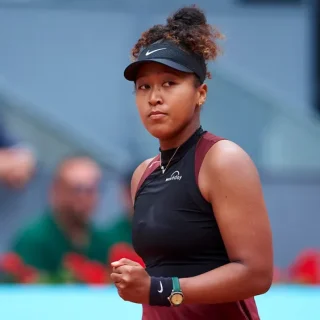|
Getting your Trinity Audio player ready...
|
About Alexei Navalny:
Born on June 4, 1976, Alexei Anatolyevich Navalny (Alexei Navalny) was a political prisoner, lawyer, anti-corruption activist, and leader of the Russian opposition. In an effort to promote changes against Russian corruption and against President Vladimir Putin and his administration, he organized anti-government protests and campaigned for office.
Navalny and his group not only coordinated political protests, but alalso disseminated information on corruption in Russia, and advertised his activities using social media. The Anti-Corruption Foundation (FBK) was founded by Navalny. He received the Sakharov Prize for his work on human rights and was acknowledged by Amnesty International as a prisoner of conscience.
Quick Facts:
- Birth Name: Alexei Anatolyevich Navalny
- Birth Date: June 4, 1976
- Birth Place: Soviet Union
- Gender: Male
- Career: Lawyer, Politician, Activist
- Most Known For: As a well-known opponent of the United Russia party, Russian lawyer and activist Alexei Navalny has faced imprisonment and an attempted murder.
Early Life and Education:
Navalny was raised in a multiethnic household. Although his mother, Lyudmila Ivanovna Navalnaya, is Russian, his father, Anatoly Ivanovich Navalny, is of Ukrainian lineage. He claimed to be half Ukrainian and half Russian.
Although Navalny was raised in Obninsk, which is located around 100 kilometres (62 miles) southwest of Moscow, he spent his summers as a youngster in Ukraine with his grandmother, where he became fluent in the language. His parents privately own and have operated a basket-weaving industry in Kobyakovo, Vologda Oblast, since 1994. They were still in charge of the factory as of 2012.
In 1993, Navalny obtained his diploma from Kalininets Secondary School, which was ranked third by the ISCED. In 1998, he received his legal degree from the Peoples’ Friendship University of Russia. After that, he attended the Financial University run by the Russian Federation’s government to study securities and exchanges, earning his degree in 2001.
In 2010, Navalny sought to expand international knowledge and establish a global network of future leaders while serving as a World Fellow at Yale University’s World Fellows Program.
Career:
Legal Career:
Navalny began serving as an attorney for several Russian businesses in 1998. 2009 saw Navalny register as an advocate and join the Kirov Oblast advocate’s chamber, which is a bar organization (registration number 43/547).
He moved to Moscow in 2010, therefore he joined the Moscow Advocate’s Chamber (registration number 77/9991) instead of the Kirov Oblast Advocate’s Chamber. After the Kirovles case ruling went into effect in November 2013, Navalny’s advocate status was taken away.
Political Anti-corruption Activist:
In the late 1990s, when Navalny started practicing law, he became a member of Yabloko, the Russian United Democratic Party. Navalny was accepted to the Central Administrative Okrug of Moscow’s Social Council in August 2005. The council was established before to the election of the Moscow City Duma later that year, in which Navalny ran as a candidate.
He was one of the founders of the Youth Public Chamber in November, which aimed to support the participation of younger lawmakers in legislative efforts. In 2005, Navalny launched a second young social movement called “DA! – Democratic Alternative” at the same time.
Additionally, Navalny organized debates on television through the state-run Moscow station TV Centre. After two highly regarded programs, the program was abruptly cancelled.
Navalny filed an application with Moscow City Hall towards the end of 2006, requesting authorization to organize the 2006 Russian nationalist march. After a falling out with the leadership over his nationalist beliefs, he was demoted as deputy chairman of the party’s Moscow chapter in 2007.
Subsequently, Navalny started the Russian National Liberation Movement, adopting a more assertive posture towards immigration matters. During the 2008 Russo-Georgian War, he demanded that Georgians be deported and made a pro-gun rights film in which he shot an attacker donning a classic Middle Eastern keffiyeh.
Engaging in Open Rebellion:
The governor of Russia’s Kirov Oblast, Nikita Belykh, hired Navalny as an advisor in 2009. With a substantial readership already gained through his LiveJournal blog, Navalny started utilizing his platform to expose corrupt state business practices.
He released a report in November 2010 alleging that $4 billion had been stolen from the oil-transport monopoly Transneft while a large pipeline was being built. A few weeks later, Navalny introduced RosPil.net, a website that allowed individuals to submit publicly accessible government contracts as proof of misconduct.
Around 6,000 people gathered in Moscow in December 2011 to protest the contested outcome after parliamentary elections and allegations of electoral fraud. An estimated 300 individuals were jailed, including Navalny. December 5, Navalny was taken into custody. After his supporters were left in suspense, Navalny showed up in court and received a maximum punishment of 15 days “for defying a government official”.
His blog started to be accessible in English after his arrest. After being freed on December 20, 2011, Navalny urged Russians to band together against Putin, claiming that the latter will attempt to win the March 4, 2012, presidential election.
Following Putin’s election in March 2012, Navalny assisted in organizing an anti-Putin demonstration at Moscow’s Pushkinskaya Square, which drew between 14,000 and 20,000 participants. Following the event, Navalny was briefly held by the police before being freed.
In 2013, Navalny was charged with embezzling $500,000 from a lumber firm that was controlled by the state. After being granted bail and running unsuccessfully for mayor of Moscow that summer, Boris and his brother Oleg were detained once more in the fall on suspicion of defrauding two more Russian businesses. Navalny received a suspended sentence; his brother was jailed.
On September 15, 2013, Navalny said that he will join and maybe lead the party after the mayoral election. Navalny was later chosen as the party’s head on November 17, 2013. Navalny’s party submitted registration paperwork for the second time on January 8, 2014.
During the party’s convention on February 1, 2015, Navalny announced that the organization was gearing up for the 2016 elections and that it will continue to operate throughout Russia.
2018 Presidential Elections – 2020 Poisoning and Death:
With increasing public support, Navalny declared his candidacy for president on December 13, 2016, but on February 8, 2017, the Leninsky district court in Kirov upheld its 2013 ruling and gave him a five-year suspended sentence. If this sentence were to become law and stay in effect, it could make it impossible for Navalny to register as a candidate in the future. The Economist and Freedom House both rated Navalny as the most likely opponent of Vladimir Putin in the 2018 race.
On April 27, 2017, Navalny was ambushed by unidentified attackers outside the Anti-Corruption Foundation headquarters. They used a Zelyonka assault on him, spraying dazzling green dye—possibly combined with other ingredients—into his face, which may harm an individual’s eyes.
It had happened to him previously in the spring. His right eye was burned chemically during the second attack, when it was clear that a caustic chemical had been used with the green disinfectant. It is said that he lost eighty percent of his sight in his right eye. Navalny said that the attack was planned by the Kremlin.
On July 27, 2017, Navalny was freed from custody following a 25-day detention period. Prior to that, he had been sentenced to 30 days in prison for planning unlawful rallies after being detained in Moscow for taking part in protests.
On January 28, 2018, Navalny organized demonstrations calling for a boycott of Russia’s next presidential election. On the day of the demonstration, Navalny was taken into custody but was later freed pending his trial.
After being detained and temporarily imprisoned once more for organizing protests in July 2019, Navalny launched the website “Smart Voting” in an effort to increase public knowledge of opposition figures most likely to defeat United Russia candidates in elections.
When Navalny was dangerously ill in August 2020 while travelling to Moscow, an emergency landing was made in Omsk, Russia. After being granted permission to seek medical attention in Berlin, it was discovered that he had been exposed to a nerve toxin known as Novichok, which was created in Russia. Senior Russian officials were subject to sanctions by the United States, the United Kingdom, and the European Union in response to the poisoning.
After the aircraft from Vnukovo Airport was rerouted to Sheremetyevo International Airport in Moscow, Navalny arrived back in Russia via plane on January 17, 2021, from Germany. He was held at the passport control station.
He received a two and a half year sentence. He went on a hunger strike in response to his March 2022 sentencing of nine more years in a maximum-security jail for embezzling money from his Anti-Corruption Foundation. Navalny, meanwhile, persisted in speaking out while incarcerated.
Navalny was set to serve his third sentence in as many years in August 2023. On account of his conviction for extremism, he received a 19-year jail sentence. The protester was being sent to a secluded prison colony north of the Arctic Circle in December of that year when he vanished from sight for more than two weeks.
His imprisonment was verified by the Federal Penitentiary Service (FSIN), who also stated that he would be in jail until the court hearing. Navalny was incarcerated from 2021 until 2023.
After going on a stroll and feeling ill that morning, Navalny passed away at the jail in Yamalo-Nenets, Western Siberia, according to a statement made by the Federal Penitentiary Service, on February 16, 2024. The time of his death was allegedly 14:17 Yekaterinburg Time.
The 2022 documentary Navalny focused on the campaigner, recounting his recuperation time in Germany after an almost deadly poisoning and his subsequent return to Russia to face imprisonment. At the 95th Academy Awards in March 2023, the film won Best Documentary Feature Film.
Personal Life:
While on vacation in Turkey in the late 1990s, Navalny met Yulia Abrosimova, a fellow student. The two were married in 2000. Currently going by Yulia Navalnaya, she has made a name for herself as a committed advocate of her husband’s fight against corruption. Zakhar is the couple’s son, while Darya is their daughter.
Navalny joined the Russian Orthodox Church after having previously been an atheist. He has stated that being an Orthodox Christian has helped him feel like he is a part of something vast and inclusive.




